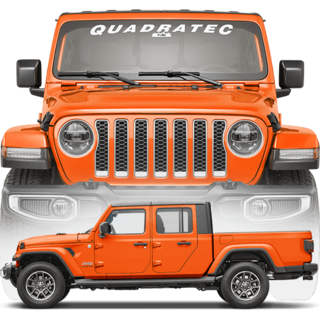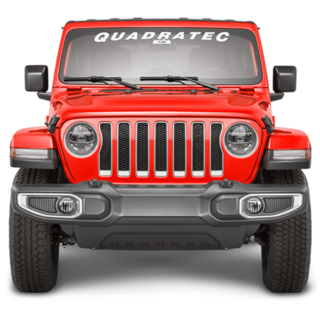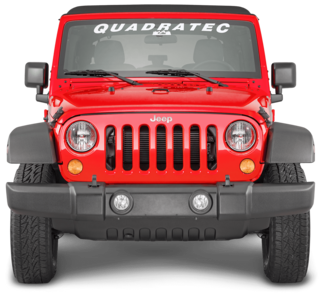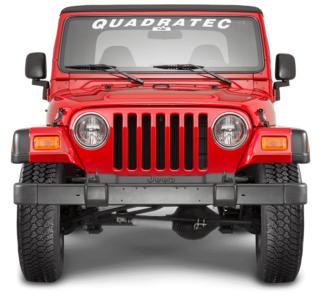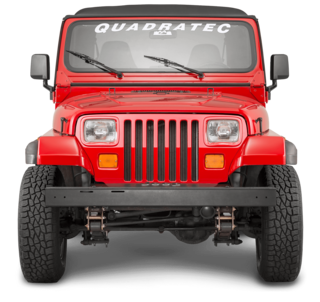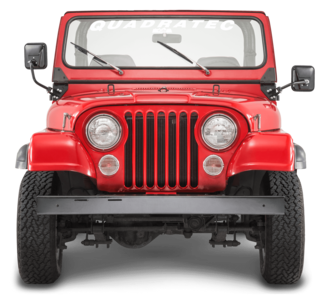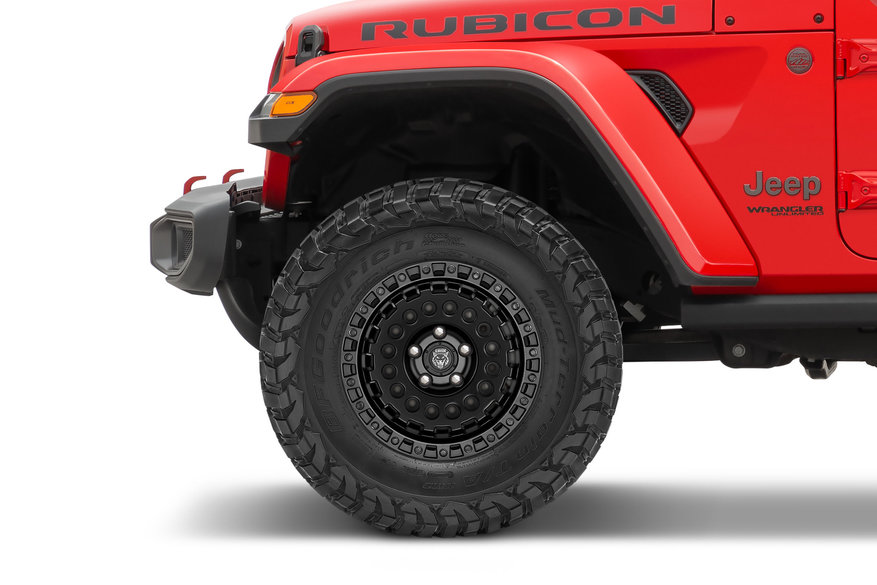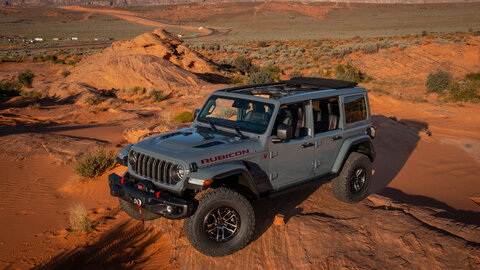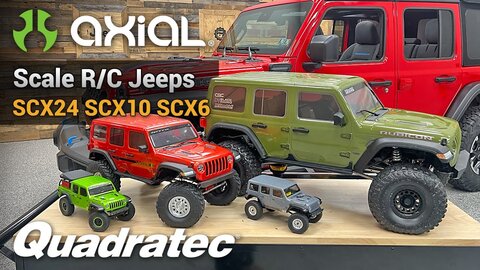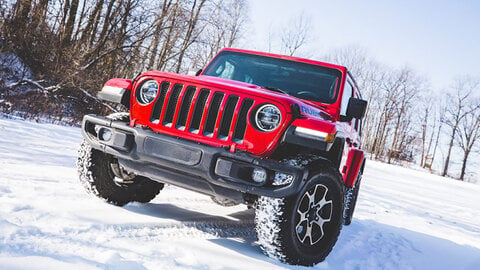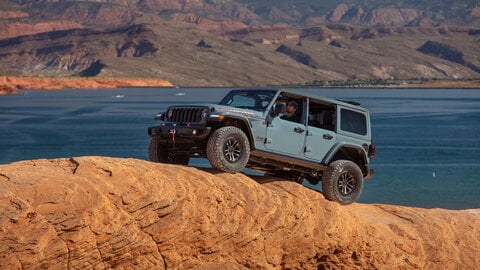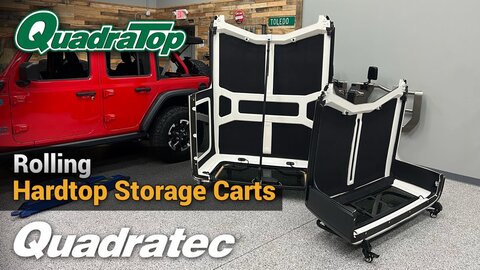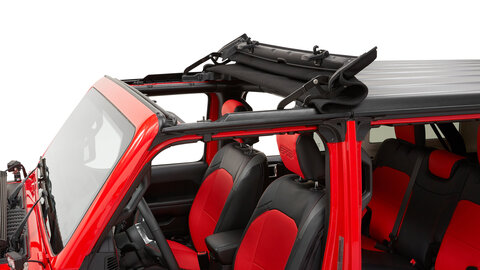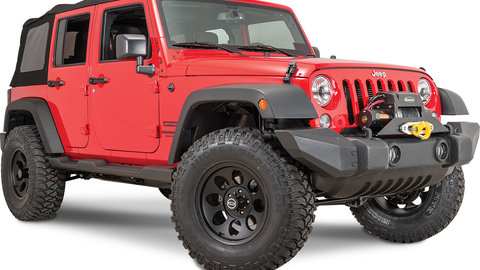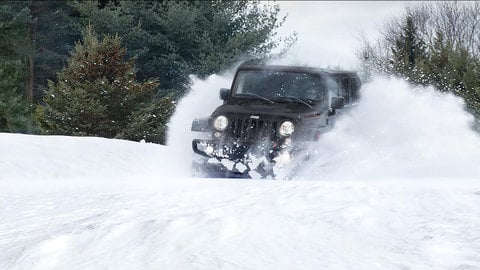by Kyle Buchter
Torque Correspondent
The age-old debate regarding which type of Jeep wheel is best has recently been changing with the times — steel versus aluminum.
Historically, steel wheels were always used more often because of the ability to beat them back into shape after taking off-road punishment. The same could not be said about the older aluminum wheels though, as they normally would not hold up to off-road abuse which led to the belief steel wheels were the way to go when it came to off-road driving.
Well here is a little break down so you can decide what fits into your driving style and budget.
Steel wheels are easy to repair, friendlier on your wallet, heavier than alloy versions and add more unsprung weight. What does this mean? You have your Jeep body and below that body is the suspension, then the axles and tires. When you are out on the trails and you encounter technical, rocky or off-camber terrain, your suspension is flexing side to side. What happens when you flex too much and do not have enough unsprung weight? You roll. Not good.
With those heavier steel wheels on your Jeep, you get that unsprung weight so your tires are planted more on the ground when flexing side to side. Keep in mind, though, when you driver with a heavier wheel, you create more rolling mass and you will feel that with less overall power and longer braking.
Lets break down other steel wheel benefits. Say you are out on the trails, either on an overland expedition or simply getting some trail time in with friends at a local off road park. Any issues that arise with your steel wheels can be fixed fairly easy; for example if you bend the lip or bead-mounting surface, a few pounds from a hammer makes you good as new. Or, that is, at least good enough to get through the day.
This is perfect if you are on a long trip with no civilization around for days, however you need to realize that steel wheels are not indestructible and could be damaged beyond repair depending on the trail obstacle. Steel wheels can also bend at the mounting surface and are harder to balance correctly.
Another thing about steel wheels; with the old style you felt all that added weight below, but dealt with it because of the wheels’ overall strength. Sure they may chip and rust, but they were tough and could be fixed quickly. The newer style of steel wheels are somewhat lighter and more stylish but do not hold up as well to abuse like the thicker ones from years ago.
When it comes to price, steel wheels normally have a lower cost than aluminum so this, obviously, is appealing to the more budget-minded consumers. While this mainly pertains to those in the wheeling crowd with TJs and older style vehicles, you do still see a few who have the base JK Wrangler with cost-saving steel wheels.
Now, what about alloy wheels as an alternative?
Well, aluminum alloy wheels of old were not engineered like they are these days. Today's alloy wheels are mixed with different metals to make them stronger and more durable over time. Whereas older aluminum wheels would crack and break under various types of off road driving conditions, modern day alloy wheels are quite a bit tougher. They sometimes even can even be repaired in certain circumstances if damaged, and there also are shops specializing in aluminum wheel repair.
Now one thing most alloy wheels have going for them is the ‘look’. We all want our daily drivers to have that perfect look, right? And with so many different options out on the market today, alloy wheels can be much more appealing to the eye than steel. We're talking things like color, design and spoke pattern that all can enhance that look of your Jeep.
All those different looks are not the only thing that makes alloy the preferred wheel style these days. These style wheels are also easier to work with as they are lighter, simple to mount and balance, run truer and are more versatile because of their numerous size options.
As far as weight goes, being lighter makes them easier to handle and you can feel the difference when driving on and off pavement. There is less unsprung weight so the rolling mass and suspension cycling is less affected - meaning the vehicle will handle better and ride smoother over rough and smooth terrain.
Remember that having lighter wheels will cause your suspension to flex more and lean hard on certain obstacles. Now, this doesn't mean you are going to roll over because of your wheels every time you are off camber, but you will want to keep this in mind when you are tackling more extreme off-road situations.
Alloy wheels will also not bend easily, and will actually scrape across obstacles. So you will not see as many dents and dings on the wheel as you would with steel. Instead, you'll see lots of scrapes and grind spots — many call it rock rash. Alloy wheels can also oxidize over time if not maintained, and some wheels stick fast to steel rotors or drums.
So which is better - Steel or Alloy?
The answer is not just as simple as the metal the wheel is made out of, but made up of many other factors as well. Factors like the weight of your vehicle. And getting a wheel that is capable of handling the weight of your Jeep will add to the durability of the wheel. Another is tire and wheel packages. For instance, if you get a 12-inch wide wheel to run a 12.50 tire then you are going to hit the outer edge of the rim on rocks.
I like to go a little more narrow on the wheel to keep a better tire bulge which is better suited while out on the trails. The bulge will bump the rocks and save the wheel. Visualize this; a 9-inch wheel for a 12.5"-wide tire. This comes down to having a tire bulge that helps protect the wheel when driving over technical terrain.
That same theory goes with tire and wheel size as well. Stepping down a wheel size, if possible, gives you more sidewall on the tire and more give overall. These factors can really help protect the wheels and give you a better chance at getting your vehicle home at the end of the day.
Next is how you drive the vehicle. If you are a fast or aggressive driver, then there is always a chance of damaging either metal type. Think about it. When you are slamming into rocks and hard objects, that abuse takes its toll. Gentle driving with controlled throttle will protect and extend the longevity of your wheels.
For those who like more aggressive and challenging off-road antics, adding a bead lock ring will strengthen the outer edge on either type of wheel. One last factor to consider is air pressure. We always air down our tires when roaming off road — not just for a smooth ride and better traction — but to also protect wheels at certain pressures. Again this goes back to tire bulge. Too low will cause the rim to hit through the tire on impacts.
Alloy or steel? Which is better?
Well, in the end, it is up to you — the driver. You know best how serious of an off-road driver you will be, as well as your budget, vehicle set up, etc.
Will you be spending a lot of time on easy, scenic trails? Then perhaps alloy is the way to go.
How do you drive? Is your nickname ‘The Wheel Executioner’? Then steel probably is your best option.
How do you set up your vehicle when off road? Tire size, air pressure, weight of vehicle - these are all things to consider.
Once you have decided on alloy or steel, then find a style that you prefer which is also affordable. Don't let yourself be influenced by folks with heavily modified vehicles or those who have an unlimited budget. Taking the time to learn about the different types of wheels, and which one will suit you and your vehicle best, is key to choosing the best products for you.

